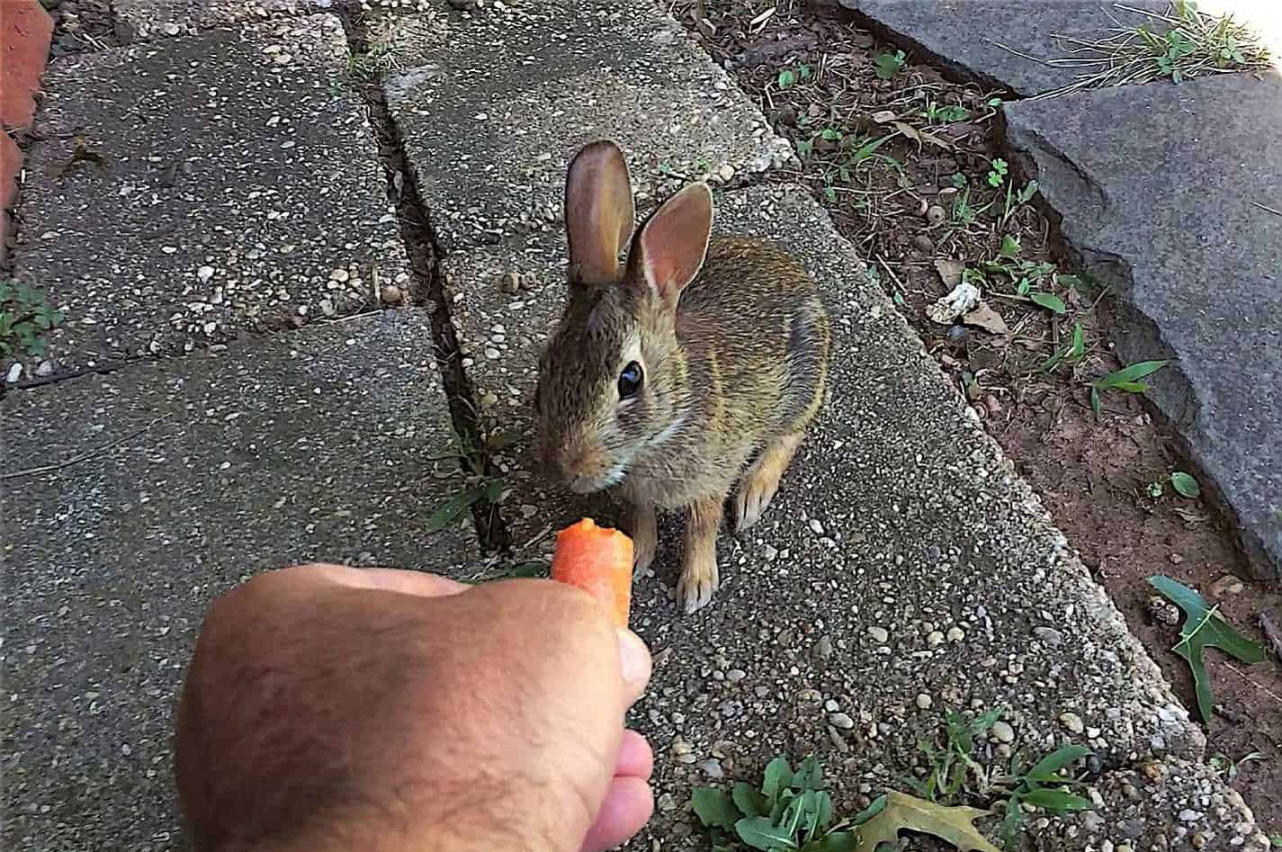What Can You Feed Wild Rabbits?
Wild rabbits often roam freely in parks, gardens, and other outdoor spaces. While they primarily forage for their own food, it is not uncommon for people to encounter these adorable creatures and wonder what they can feed them. Providing appropriate food for wild rabbits can help supplement their diet and ensure their health and well-being. However, it is essential to understand their nutritional needs and feed them suitable options. In this article, we will explore what you can feed wild rabbits to support their natural diet.

1. Natural Diet of Wild Rabbits
Wild rabbits primarily feed on a diet consisting of grass, leaves, twigs, and bark. These herbivores are grazers and enjoy nibbling on a variety of plants throughout the day. Their digestive system is adapted to break down fibrous materials, making them efficient at extracting nutrients from plant matter.
1.1 Grass
The grass is a staple food for wild rabbits. It provides essential nutrients and fiber that aid in digestion. A variety of grasses, such as meadow grass, timothy grass, and ryegrass, are suitable for feeding wild rabbits. Ensure that the grass you offer is free from any chemicals or pesticides, as these can be harmful to the rabbits’ health.
1.2 Leaves
Leaves from various plants can be a nutritious addition to a wild rabbit’s diet. Dandelion leaves, kale, spinach, and lettuce are some options that rabbits enjoy. However, it is crucial to introduce new leaves gradually and in small quantities to prevent digestive upsets.
1.3 Twigs and Bark
Wild rabbits also consume twigs and bark as a source of fiber and to help wear down their continuously growing teeth. Willow, apple, and birch twigs are safe for rabbits to chew on. Ensure that the twigs are pesticide-free and not treated with any chemicals.
2. Supplementary Foods for Wild Rabbits
While a wild rabbit’s diet mainly consists of grass, leaves, twigs, and bark, there are a few supplementary foods that can be offered to provide additional nutrients.
2.1 Vegetables
Wild rabbits can benefit from the occasional addition of vegetables to their diet. Carrots, broccoli, cauliflower, and bell peppers are some vegetables that can be fed in moderation. Remember to introduce new vegetables gradually to avoid digestive issues.
2.2 Fruits
Offering fruits as treats can provide wild rabbits with extra vitamins and minerals. Apple slices, strawberries, blueberries, and bananas are suitable options. However, fruits should only be given in small quantities due to their high sugar content.
2.3 Hay
Hay is an excellent source of fiber and aids in a rabbit’s digestion. It also helps wear down their teeth and prevents dental problems. Timothy hay or meadow hay is recommended for wild rabbits. Ensure that the hay is fresh and free from mold or dust.
2.4 Water
Providing fresh water is essential for wild rabbits. Place a shallow dish or a water bottle close to their habitat, ensuring it is easily accessible. Make sure to regularly refill the water container and clean it to prevent the growth of harmful bacteria.
3. Foods to Avoid
While there are plenty of options to feed wild rabbits, certain foods should be avoided as they can be harmful to their health.
3.1 Processed Foods
Avoid feeding wild rabbits any processed foods, including bread, crackers, or cereals. These items lack essential nutrients and can lead to digestive issues.
3.2 Sugary Foods
Avoid feeding wild rabbits sugary foods like chocolate or candy. These can cause obesity and dental problems.
3.3 Toxic Plants
Be cautious of toxic plants such as rhubarb, foxglove, or lily of the valley. These plants can be harmful or even fatal to rabbits if ingested.
3.4 Dairy Products
Dairy products should be avoided as rabbits have difficulty digesting lactose, which can result in digestive upsets.
Feeding wild rabbits inappropriate foods can be detrimental to their health. Always opt for natural, fresh options and avoid processed or sugary treats.
Frequently Asked Questions (FAQs)
Can I feed wild rabbits bread?
It is best to avoid feeding wild rabbits bread as it lacks nutritional value and may cause digestive problems.
Can wild rabbits eat grass clippings?
While grass clippings may seem like a convenient option, they can ferment quickly and cause digestive upsets. It is safer to stick to fresh grass.
Are carrots safe for wild rabbits?
Carrots can be fed to wild rabbits in moderation. However, their high sugar content means they should not be offered excessively.
Should I provide salt or mineral blocks to wild rabbits?
Wild rabbits obtain necessary minerals from their natural diet, so additional salt or mineral blocks are not required and may even be harmful.
Related Articles…
Copyright Notice:
This website utilizes images found online, all copyrights are retained by their original owners. If you would like an image removed, kindly contact us.